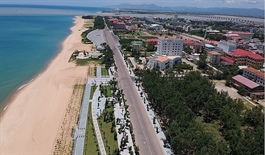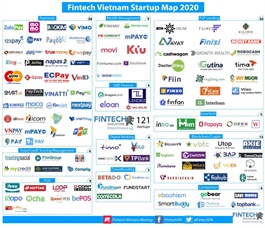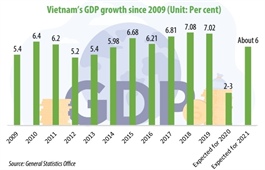EVFTA to spur breakthroughs for Vietnam’s digital transformation
EVFTA to spur breakthroughs for Vietnam’s digital transformation
The recently implemented EU-Vietnam Free Trade Agreement (EVFTA), the launch of Vietnam’s national digital transformation program, and the impact of Covid-19 lockdown all promise a surge of unprecedented opportunities for Vietnam’s digital transformation.
|
In recent years, Vietnam’s digital economy has been booming and is the second fastest-growing market in Southeast Asia, after Indonesia. Vietnam’s internet economy reached a value of US$12 billion in 2019, with an annual growth rate of 38 percent since 2015 and is expected to surge to US$43 billion by 2025. Development room for Vietnam’s digital economy remains large, especially in the retail sector. In addition, Vietnam’s digital economy is expected to benefit from the EVFTA and the impact of the Covid-19 pandemic.
Vietnam has also launched a national digital transformation program in eight priority sectors, including health, education and training, finance and banking, agriculture, industry, energy, resources and environment, and transport and logistics.
The effect of the EVFTA and the launch of Vietnam’s national digital transformation program provide an opportunity for the two sides to promote cooperation and exploit each other’s advantages, said Nguyen Trong Duong, deputy director of the Authority of Information Technology Application under the Ministry of Information and Communications.
Digital transformation is an indispensable factor to help businesses gradually get used to the new normal state after the Covid-19 pandemic. According to a recent survey, 47 percent of Vietnamese businesses have increased use of digital platforms in response to the pandemic, but only seven percent of businesses have invested in digital solutions. Pham Anh Tuan, deputy director of the Vietnam Institute of Digital Transformation and Innovation, said Vietnam’s digital transformation remains limited due to the lack of a strong ecosystem, human resources, skills and thinking, and core technologies.
World Bank Lead Economist and Program Leader for Vietnam Jacques Morisset said Vietnam has been a bit slow in developing digitalization. It is too difficult or impossible to pay by phone, and most government procedures have been carried out on paper, Morisset said.
The government and businesses must be aware of the role of digital transformation and digital economy in order to achieve success in its process.
| Vietnam’s national digital transformation program by 2025, with a vision to 2030, rests on three main pillars - developing digital government, the digital economy and a digital society. Vietnam targets expanding its digital economy to 20 percent of the GDP by 2025. Social distancing and lockdown have further accelerated the use of digital technologies. |




























